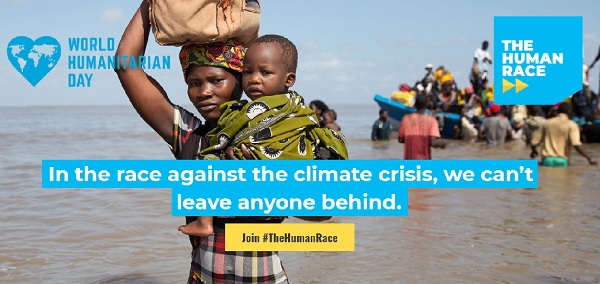
The Directorate for Development Cooperation and Humanitarian Action of Luxembourg's Ministry of Foreign and European Affairs has published a press release concerning World Humanitarian Day 2021 in which they focus on climate change and its consequences for the most vulnerable.
World Humanitarian Day, established in memory of the victims of the attack on the United Nations headquarters in Baghdad in 2003, which killed 22 people, including the United Nations Special Representative in Iraq, Sergio Vieira de Mello, is an opportunity to highlight the exemplary work of humanitarian personnel, faced with enormous challenges linked to both climate change and complex security crises. World Humanitarian Day has evolved over the years into a global awareness campaign and a call to action for the survival, well-being and dignity of people affected by crisis.
In 2021, the focus is on the issue of climate change, aiming to draw attention to the immediate consequences for the most vulnerable populations.
Environmental sustainability is one of the priorities of the general strategy of Luxembourg Cooperation (en route for 2030) which has also recently published a transversal strategy dedicated to it.
Reducing disaster risks and strengthening the resilience of the most vulnerable populations occupy a central role in the Luxembourg humanitarian action strategy.
The last twelve months have been particularly marked by the worsening of the food crisis in Ethiopia, accentuated by the conflict in the Tigray region, the deterioration of the political situation in Myanmar, the complex crises in the Central African Republic and in the Sahel region, the eruption of the Nyiragongo volcano in the DRC and very recently the earthquake in Haiti, as well as the sudden and rapid deterioration of the security situation in Afghanistan.
The NGOs and international partner agencies of Luxembourg Humanitarian Action pay particular attention to environmental sustainability and disaster risk prevention, in particular through projects to strengthen the resilience of displaced communities in Niger, or a prevention project. to improve resilience to mass casualty disasters in Myanmar health facilities.
The climate crisis is further fuelling the alarming evolving humanitarian needs of the world's most vulnerable people. According to UNOCHA's Global Humanitarian Overview for the year 2021, more than 239 million people in 56 countries are in urgent need of humanitarian assistance.
In the race against the climate crisis we can't leave anyone behind.








